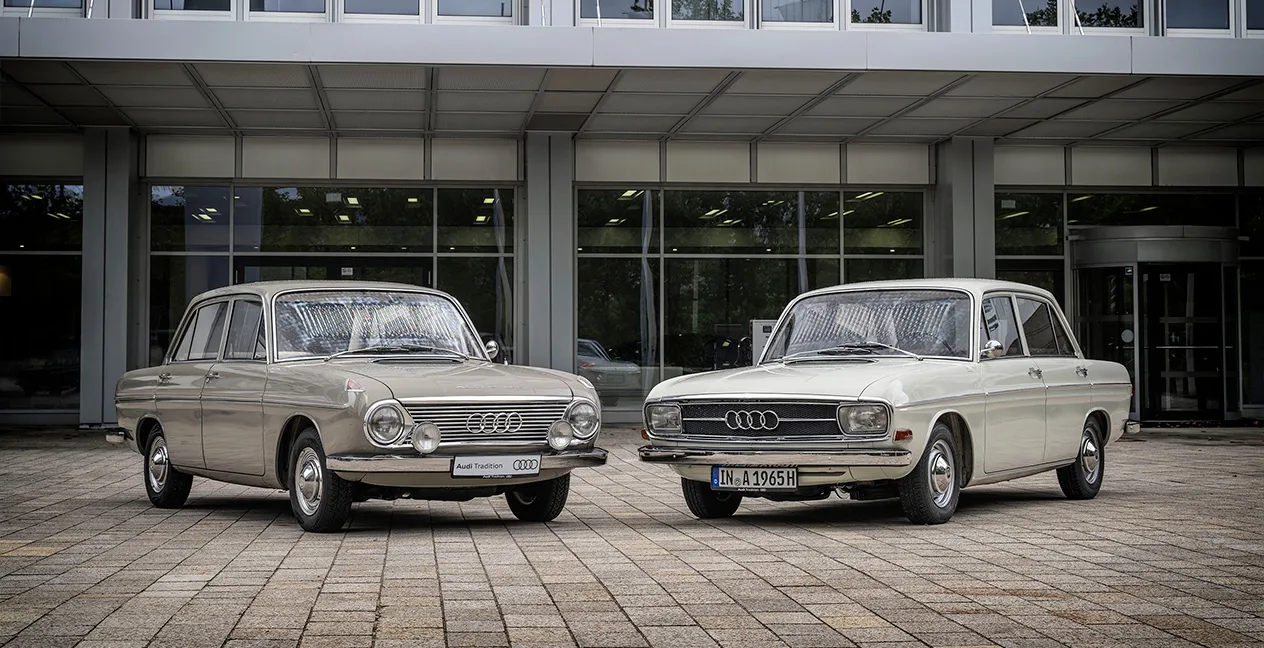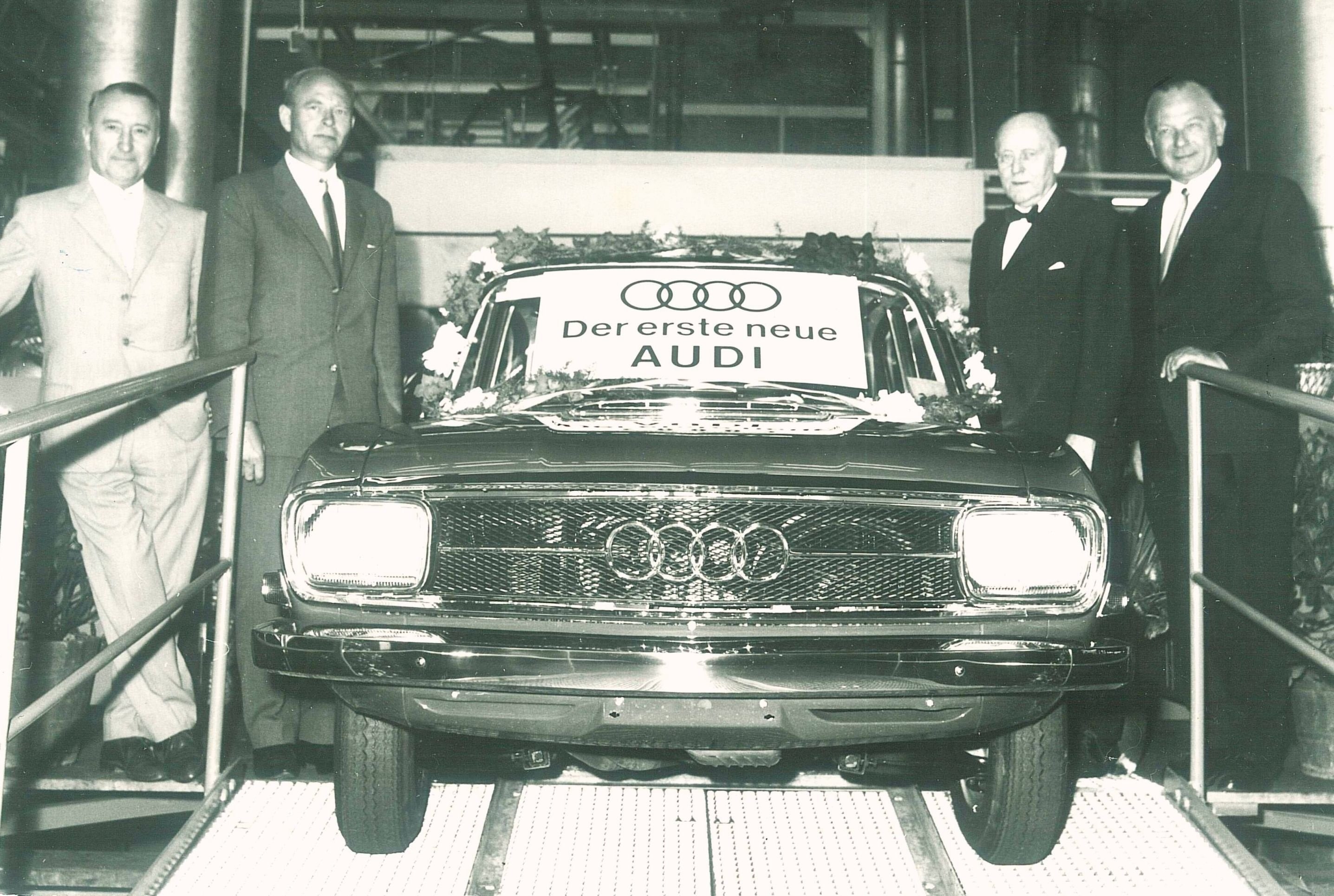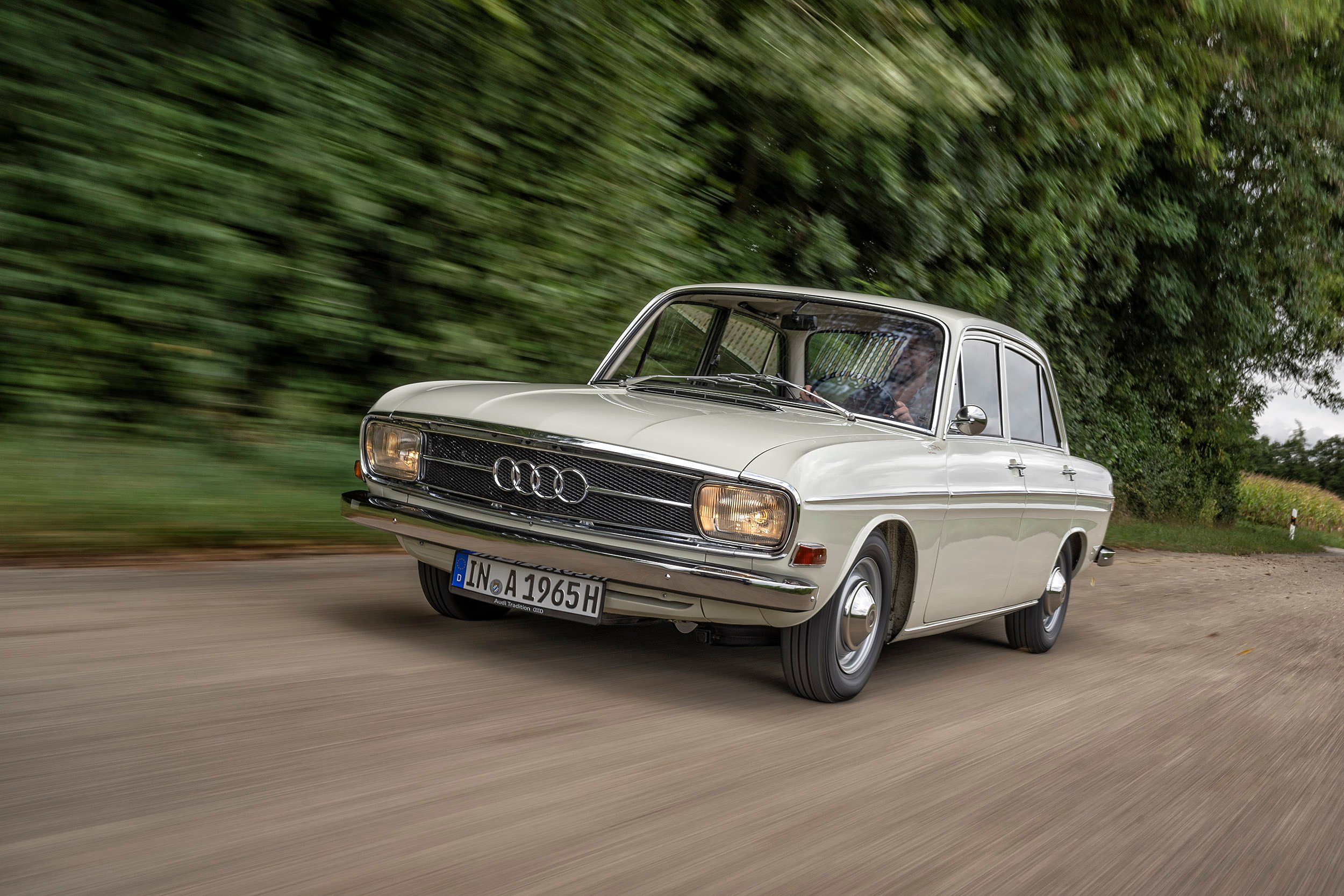
Created by Lucas Luís at Monday, 7 July 2025
The Audi that Changed the History of the Four Rings
Exactly 60 years ago, in August 1965, the first post-war Audi rolled off the production line in Ingolstadt.
The date not only marked the return of the Audi name to the automotive market after a 25-year hiatus, but also represented a technical and economic turning point for Auto Union GmbH, the predecessor of today’s AUDI AG.
At the time, the company was going through a turbulent period. DKW models, equipped with two-stroke engines and based on pre-war technology, were losing popularity. The last of these, the DKW F102, despite its modern design, could no longer meet the expectations of an increasingly demanding public. A new direction was needed.
It was then, with the support of Daimler-Benz AG — which still owned Auto Union at the time — that an opportunity for transformation arose. The introduction of a four-stroke engine and the arrival of engineer Ludwig Kraus, who would go on to lead technical development, enabled the launch of a new model in 1965: the Audi F103.

This new Audi was more than just a car. It was a statement of innovation. For the first time, Auto Union abandoned the DKW name and opted for the Audi badge, long associated with cutting-edge engineering. The change signalled the start of a new era for the brand with the four rings — and the public responded enthusiastically. In just the first three months, 16,000 units were produced.
In the years that followed, the F103 family grew. The Audi 60, 75, 80 and Super 90 models were launched, each offering different levels of power and equipment. The Audi Super 90, for instance, stood out with its chrome wheel arch trims and a top speed of over 160 km/h — impressive figures for the time.
The F103 remained in production until 1972, when it was replaced by the Audi 80. However, the impact of the original model was immense: more than 400,000 units were sold, with the Audi 60 being the most popular of the range.

The success of this model enabled Auto Union not only to solidify its presence in the market but also to ensure Audi’s independence and unique identity within the Volkswagen Group. It marked the beginning of a journey that would transform the brand into a global reference in the premium segment.
To commemorate this historic date, the Audi museum mobile in Ingolstadt will host a talk on 23 July by the brand’s historian, Ralf Friese, who will share all the details of this pivotal transformation. Entry is free, but prior registration is required.
Sixty years on, the legacy of the F103 lives on — not only in today’s Audi models, but in the very philosophy of the brand: always looking forward, with technology, innovation, and a deep respect for its history.






